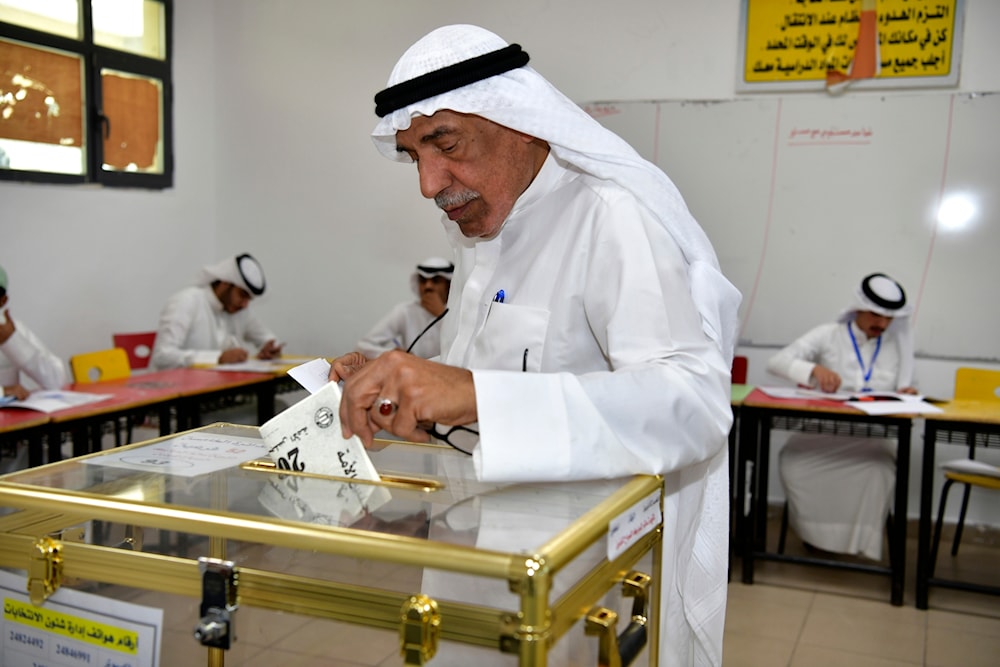Kuwaiti opposition maintains majority in parliament elections
This week's election is the first to be held under the new emir Sheikh Meshal al-Ahmad al-Sabah.
-

A man casts his vote for the National Assembly elections at Salem al-Nawaf school in al-Riqqa district, Kuwait, on Thursday, April 4, 2024. (AP)
Opposition politicians maintained a majority in Kuwait's parliament after the Gulf state's third parliamentary vote in as many years held just months into the new Emir's reign, results reported by Kuwait's official KUNA news agency revealed.
Results showed that opposition candidates garnered 29 seats in the 50-member assembly, matching the outcome of last year's election, noting that the new parliament resembles the outgoing one, with all but 11 lawmakers retaining seats.
Bader al-Saif, assistant professor of history at Kuwait University, told AFP, "No radical change was expected in the results," adding, "This is one of the lowest change ratios."
Parliamentary elections have become an annual occurrence for Kuwait, home to 7% of the world's oil reserves and the Gulf's most powerful elected assembly, but elections for the past two years have been in a stalemate, which delayed crucial reforms. That was a result of constant clashes between the national assembly and the royal-appointed cabinet.
Al-Saif continued that the impasse is expected to continue on the basis of little change being seen in the parliamentary line-up.
"A new showdown is in the making," he noted, adding that "some of the new faces are quite outspoken."
Read more: Large candidate pool gears up for Kuwait's parliamentary elections
This week's election, the first to be held under the new Emir, Sheikh Meshal al-Ahmad al-Sabah, saw a turnout of almost 62% after polling stations closed at midnight as per the Information Ministry.
Sheikh Meshal, formerly the world's oldest crown prince, took power at the age of 83 in December following the death of his half-brother and predecessor, Sheikh Nawaf.
Thursday's election -- the third since 2022 and the fourth in five years -- was different in that the new parliament will be tasked with approving Sheikh Meshal's choice of crown prince, Kuwait's future emir.
If the assembly takes the unprecedented step of rejecting his heir, Sheikh Meshal will submit three candidates for parliamentarians to choose from among them.
In February, Kuwait's Emir Meshal Al-Ahmad Al-Jaber Al-Sabah issued a decree to dissolve the country's parliament due to an irreconcilable standoff between the legislative and executive branches.
"Based on the prime minister's proposal and after approval by the Council of Ministers, we have decided that the National Assembly be dissolved," the Emir's decree said, as quoted by KUNA.
Ministers boycotted a parliamentary session in protest against a speech given by a lawmaker that they perceived as containing an "underlying offense".
The lawmaker in question is named Abdul Karim al-Kandari, who reportedly criticized the weakness of Arab rulers in supporting Palestine, which somehow led cabinet ministers to interpret this as an offense toward the Emir.

 3 Min Read
3 Min Read








